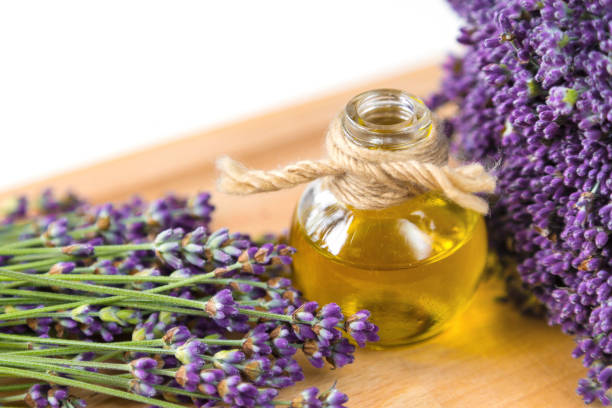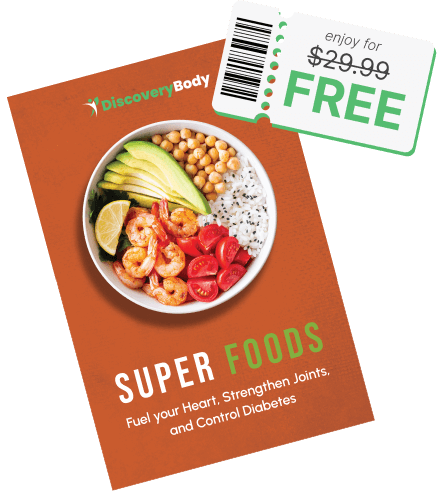No products in the cart.
Alternative Treatments
Say Goodbye To Frozen Shoulder Pain With These Natural Remedies
Are you tired of the frequent shoulder pain and restricted mobility caused by a frozen shoulder? If so, you are not alone. Frozen shoulder, often called adhesive capsulitis, affects millions of individuals worldwide. Fortunately, there are natural therapies that can help ease pain and improve movement without requiring surgery or pharmaceuticals.
In this article, we’ll look at several excellent natural cures for frozen shoulder. We will present you with a thorough guide to overcoming this distressing illness, including mild exercises and stretches, herbal medicines, and heat therapy. Whether you want to alleviate pain, increase flexibility, or speed up the healing process, we have you covered.
What is Frozen Shoulder?
Frozen shoulder is a disorder marked by discomfort and stiffness in the shoulder joint. It happens when the connective tissues around the shoulder joint become inflamed and swollen, causing a loss of mobility. The actual etiology of frozen shoulder is unknown, but age, gender, and certain medical problems can all raise the chance of acquiring it.
Causes and Symptoms of Frozen Shoulder
Frozen shoulder can come from a variety of circumstances, including injury, surgery, or chronic immobilization of the shoulder joint. It is more common in people aged 40 to 60, and it affects more women than males. People with diabetes, thyroid issues, and autoimmune conditions are more likely to get frozen shoulder.
The major symptom of frozen shoulder is discomfort, which is commonly described as a deep, agonizing sensation in the shoulder joint. This discomfort can be persistent or sporadic, and it may intensify with activity. In addition to pain, frozen shoulder creates stiffness, making it difficult to do ordinary tasks like reach overhead or behind the back.

Traditional Treatments for Frozen Shoulder
Traditionally, frozen shoulder was treated with a mix of pain relievers, physical therapy, and, in extreme cases, surgery. Nonsteroidal anti-inflammatory drugs (NSAIDs) can assist alleviate pain and inflammation, but physical therapy focuses on stretching and strengthening exercises to increase mobility.
In some circumstances, corticosteroid injections may be used to reduce inflammation and provide temporary relief. However, these treatments are frequently associated with negative effects and may not always provide long-lasting relief. That is why many individuals are looking for natural solutions for frozen shoulder.
The Benefits of Natural Remedies for Frozen Shoulder
Natural therapies for frozen shoulder have various advantages over conventional treatments. First and foremost, they are generally safe and free of the negative effects that come with drugs or intrusive procedures. Natural therapies also tend to target the root causes of frozen shoulder rather than simply hiding the symptoms.
Furthermore, natural remedies can be readily integrated into your everyday routine and combined with orthodox treatments for better effects. They are also affordable and may be completed in the comfort of your own home. So let’s look at some of the most popular natural cures for frozen shoulder.
Common Natural Remedies for Frozen Shoulder
- Heat Therapy: Applying heat to the injured shoulder can relax the muscles and stimulate blood flow, which promotes healing and reduces stiffness. To enjoy the benefits of heat treatment, use a heating pad, a hot water bottle, or take a warm shower. Apply heat for 15-20 minutes at a time, and always use a towel or cloth to protect your skin from burns.
- Cold therapy: Cold therapy, also known as cryotherapy, can reduce inflammation and numb the area, resulting in brief pain relief. You can place an ice pack or a bag of frozen vegetables wrapped in a thin cloth on the injured shoulder for 15-20 minutes at a time. Remember to always use a barrier to protect your skin from coming into close contact with ice.
- Gentle Exercises: Gentle exercises can help increase the flexibility and range of motion in your shoulder joint. Pendulum swings, shoulder rolls, and wall climbs are some of the best workouts for frozen shoulders. These exercises should be done carefully and with control, never pushing yourself to the point of pain. Begin with a few repetitions and progressively increase as your shoulder moves more freely.
- Stretches: Stretching exercises can help reduce tension in the muscles surrounding the shoulder joint while also improving flexibility. Cross-body arm stretches, towel stretches, and sleeper stretches are all great ways to stretch frozen shoulders. Hold each stretch for 15-30 seconds, then repeat numerous times throughout the day.
- Massage Therapy: Massage therapy can assist to relax muscles, enhance blood circulation, and relieve pain and stiffness. Use your hands, a foam roller, or a massage ball to gently massage the afflicted shoulder. Start with gentle pressure and gradually increase as tolerated. If the discomfort worsens during the massage, cease right away.

Essential Oils for Relieving Frozen Shoulder Pain
In addition to the natural therapies listed above, essential oils can help relieve frozen shoulder pain. Essential oils are highly concentrated plant extracts with medicinal effects. When used topically, they can relieve inflammation, pain, and promote relaxation.
The following essential oils have been shown to be effective for frozen shoulder:
- Lavender Oil: Lavender oil is renowned for its calming and pain-relieving properties. It can help reduce inflammation and promote relaxation, making it an excellent choice for relieving frozen shoulder pain.
- Peppermint Oil: Peppermint oil has a cooling effect on the skin and can help reduce pain and inflammation. It also has a refreshing scent that can provide a soothing effect.
- Eucalyptus Oil: Eucalyptus oil has analgesic and anti-inflammatory properties, making it effective in reducing pain and inflammation associated with frozen shoulder.
To use essential oils for frozen shoulder, dilute a few drops in a carrier oil like coconut or almond oil before gently massaging the mixture onto the affected shoulder. You can also add a few drops to a warm bath or use a diffuser to inhale the scent.
Herbal Remedies for Reducing Inflammation and Improving Mobility
Herbal remedies can also play a significant role in reducing inflammation and improving mobility in frozen shoulder. Here are some herbs that have been traditionally used for their anti-inflammatory properties:
- Turmeric: Turmeric contains a compound called curcumin, which has powerful anti-inflammatory properties. Adding turmeric to your diet or taking curcumin supplements can help reduce inflammation and provide relief from frozen shoulder symptoms.
- Ginger: Ginger is another potent anti-inflammatory herb that can help reduce pain and inflammation in the shoulder joint. You can consume ginger in various forms, such as fresh ginger root, ginger tea, or ginger supplements.
- Boswellia: Boswellia, also known as Indian frankincense, has been used for centuries in Ayurvedic medicine for its anti-inflammatory properties. Boswellia supplements can help reduce pain and inflammation associated with frozen shoulder.
It’s important to note that herbal remedies may interact with certain medications or have contraindications for certain medical conditions. Consult with a healthcare professional before incorporating herbal remedies into your frozen shoulder treatment plan.

Home Exercises and Stretches for Frozen Shoulder
In addition to the gentle exercises and stretches mentioned earlier, there are several other home exercises and stretches that can help improve mobility and reduce pain in frozen shoulder. Here are a few examples:
- Crossover Arm Stretch: Stand up straight and extend your affected arm across your chest. Use your other hand to gently pull the affected arm closer to your body until you feel a stretch in the back of your shoulder. Hold for 15-30 seconds and repeat several times.
- Doorway Stretch: Stand in a doorway and place your affected arm on the door frame at a 90-degree angle. Slowly lean forward until you feel a stretch in the front of your shoulder. Hold for 15-30 seconds and repeat several times.
- Wall Walks: Stand facing a wall and place your fingertips against the wall at waist height. Slowly walk your fingers up the wall as high as you can without pain. Hold for a few seconds and then walk your fingers back down. Repeat several times.
Remember to perform these exercises and stretches slowly and with control, and never push yourself to the point of pain. If you experience any discomfort, stop immediately and consult with a healthcare professional.
Tips for Incorporating Natural Remedies into Your Frozen Shoulder Treatment Plan
When incorporating natural remedies into your frozen shoulder treatment plan, it’s important to be consistent and patient. Healing takes time, and it may take several weeks or even months to experience significant improvement. Here are some tips to help you get the most out of your natural remedies:
- Start Slow: Begin with gentle exercises and stretches and gradually increase the intensity and duration as your shoulder becomes more mobile. Pushing yourself too hard too soon can lead to further injury and delayed healing.
- Be Consistent: Consistency is key when it comes to natural remedies. Incorporate them into your daily routine and stick to them even when you start to feel better. This will help prevent a relapse and promote long-term healing.
- Listen to Your Body: Pay attention to how your body responds to the natural remedies and adjust accordingly. If a certain exercise or stretch causes pain or discomfort, modify or avoid it altogether. Always listen to your body’s cues and respect its limitations.
- Seek Professional Guidance: If your frozen shoulder symptoms worsen or fail to improve with natural remedies, it’s important to seek professional guidance. A healthcare professional can evaluate your condition and provide appropriate recommendations or additional treatments if necessary.
Remember, natural remedies are not a one-size-fits-all solution. What works for one person may not work for another. It’s important to find the remedies that work best for you and tailor your treatment plan accordingly.
Conclusion
Frozen shoulder can be a painful and debilitating disease, but with the appropriate treatment, recovery is attainable. Natural medicines provide a safe and effective alternative to orthodox treatments, alleviating pain, lowering inflammation, and increasing mobility. From heat therapy and moderate exercises to essential oils and herbal cures, there are several natural remedies that can assist you on your path to a pain-free, mobile, and active lifestyle.
Remember to be patient and consistent when using natural medicines, and always listen to your body. Healing takes time, but with determination and the correct tools, you can say goodbye to shoulder pain and regain your range of motion. Say goodbye to chronic agony and welcome to a pain-free, mobile, and active lifestyle once more.
Trusted Health, Wellness, and Medical advice for your well-being



Recommended Posts
Demystifying STDs: What You Need to Know
The subject of sexually transmitted infections (STDs) may be delicate and frequently misinterpreted. There has
Are Resistance Bands Good For Older Adults
Are resistance bands suitable for older adults? This is a common question among seniors who
What Type Of Doctor Is Best For Elderly
As we age, our healthcare requirements vary, and it is critical to locate the correct
Demystifying Strep Throat: How it Spreads and How to Protect Yourself
Strep throat, a common bacterial infection, spreads quickly and causes discomfort and difficulty for individuals
What Color Is Your Pee Supposed To Be
As humans, we all need to pee. Our bodies use a natural method to clear
Suicidal Thoughts Are More Common in Teens Who Have Had Multiple Concussions
According to recent study, teens—especially boys—are more likely than their classmates to consider, plot, or